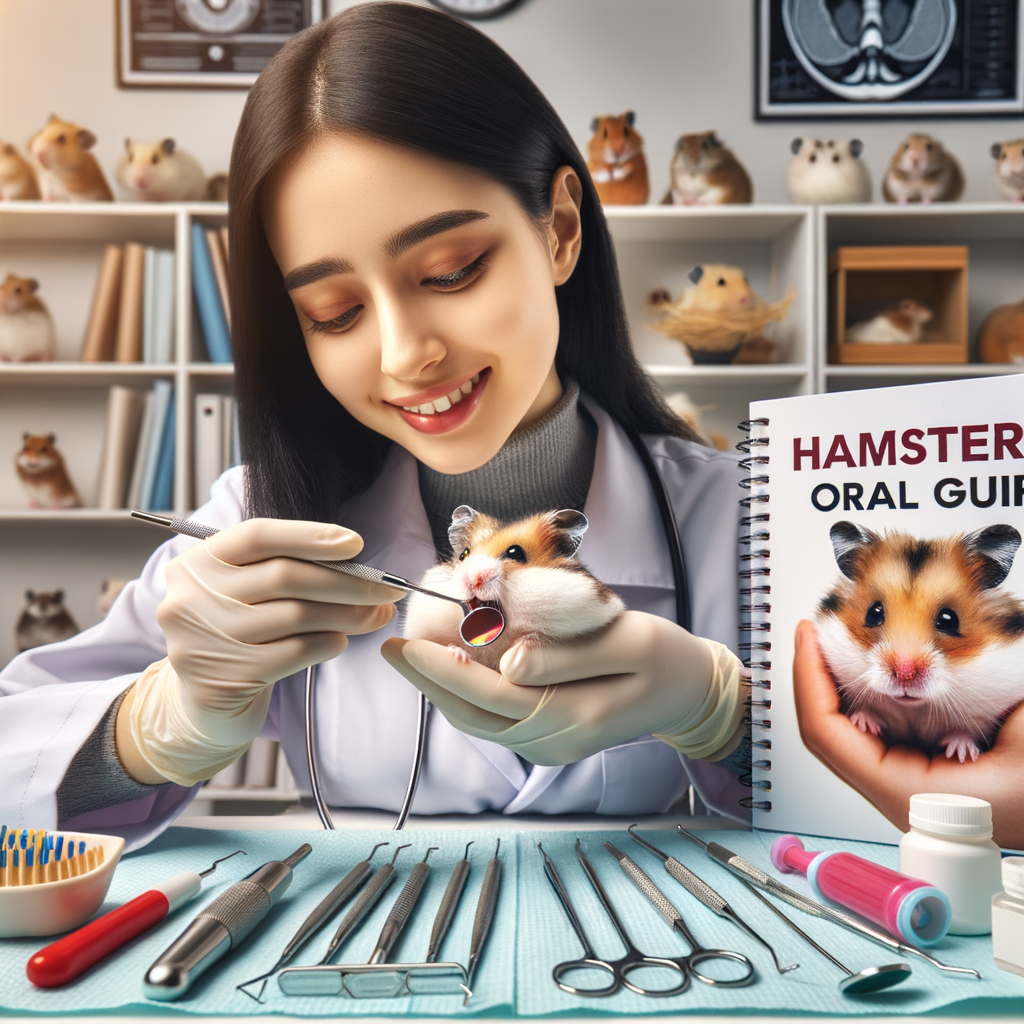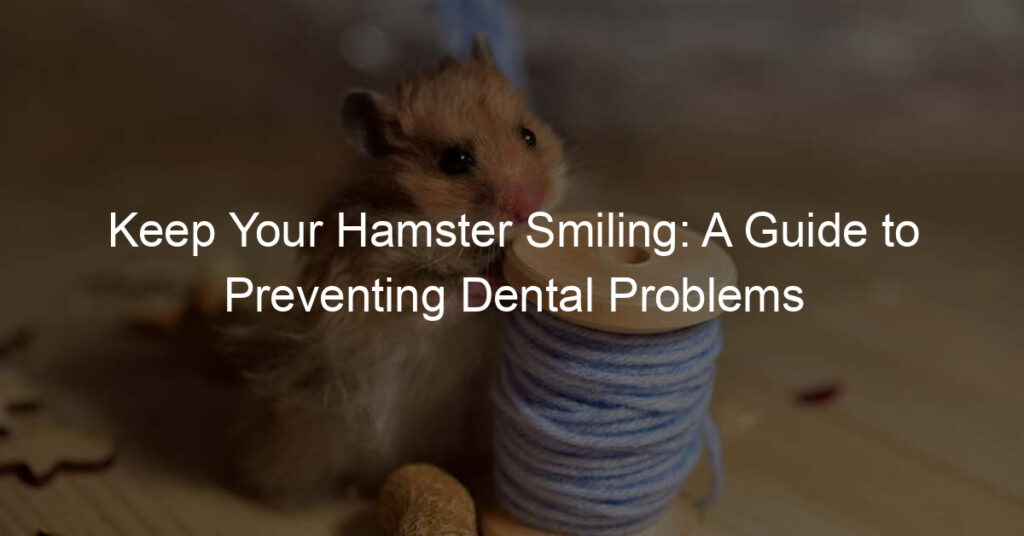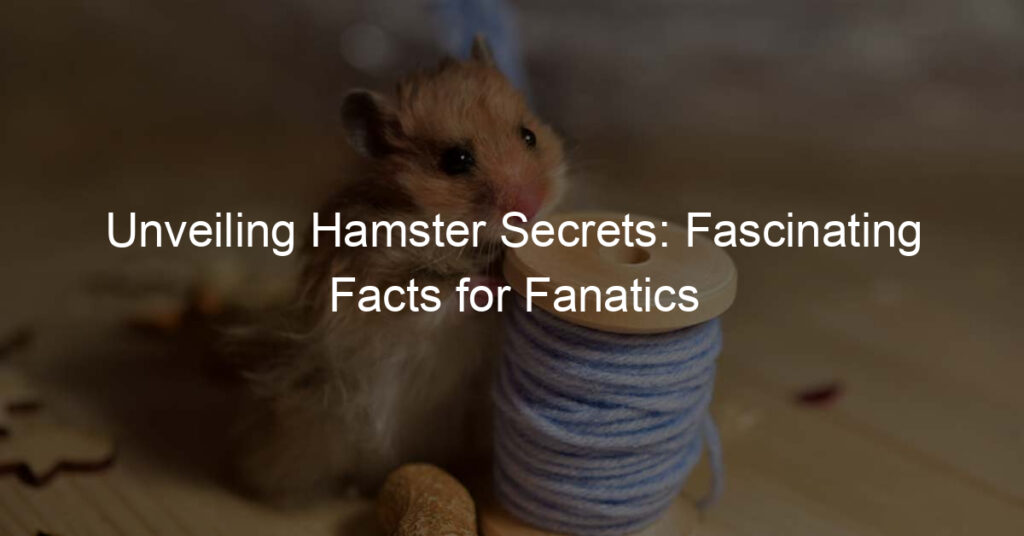
Introduction to Hamster Oral Health
Just like humans, hamsters also need to maintain good oral health. It plays a crucial role in their overall well-being. In this section, we will explore the importance of oral health in hamsters and discuss some common dental problems they may face.
- Importance of oral health in hamsters
- Common dental problems in hamsters
- Overgrown Teeth: As mentioned earlier, a hamster’s teeth never stop growing. If they don’t wear down their teeth by chewing, the teeth can become overgrown, making it difficult for them to eat.
- Misaligned Teeth: Sometimes, a hamster’s teeth can grow in the wrong direction. This can cause pain and difficulty in eating.
- Tooth Decay: Just like humans, hamsters can also suffer from tooth decay if their diet is high in sugar.
Good oral health is vital for a hamster’s overall health and happiness. Hamsters use their teeth for various activities like eating, gnawing, and burrowing. If their teeth are not healthy, it can affect their ability to do these activities, leading to discomfort and other health issues.
Moreover, a hamster’s teeth never stop growing. Regular chewing helps keep their teeth at the right length. If a hamster’s teeth become too long or misaligned, it can lead to serious health problems. Therefore, maintaining good oral health in hamsters is of utmost importance.
Hamsters can suffer from a variety of dental problems. Some of the most common ones include:
It’s essential to regularly check your hamster’s teeth for any signs of these problems. If you notice anything unusual, it’s best to consult a vet immediately.
Understanding Hamster Teeth
Hamsters are adorable pets, but they have unique dental needs. Understanding the structure of their teeth can help you provide the best care for your furry friend.
Structure of Hamster Teeth
Hamster teeth are divided into two main types: Incisors and Molars. Each type has a specific function and requires different care.
- Incisors: These are the front teeth of the hamster. They are long and sharp, designed for gnawing and biting. Incisors are the most visible teeth and they grow continuously throughout the hamster’s life. This is why it’s important to provide your hamster with chew toys to help wear down these teeth and prevent overgrowth.
- Molars: These are the back teeth of the hamster. They are flat and used for grinding food. Unlike the incisors, molars do not grow continuously but they can still suffer from problems like decay if the hamster’s diet is not properly balanced.
Understanding the structure of your hamster’s teeth is the first step in ensuring their oral health. Regular check-ups, a proper diet, and providing safe chew toys are all essential in maintaining your hamster’s dental health.
Remember, a happy hamster is a healthy hamster, and that includes their teeth!
Growth of Hamster Teeth
- Continuous growth: Hamster teeth never stop growing. This is why it’s crucial to provide them with materials to chew on and maintain a proper diet.
- Importance of wear and tear: Chewing helps wear down their teeth, preventing overgrowth and other dental issues.
- Proper diet: A balanced diet is essential for your hamster’s dental health. Foods rich in fiber, like fruits and vegetables, can help keep their teeth healthy.
- Chew toys: Safe and appropriate chew toys can help manage the growth of your hamster’s teeth.
- Regular check-ups: Regularly inspecting your hamster’s teeth can help detect any potential issues early.
- Monitoring eating habits: Changes in your hamster’s eating habits can indicate dental problems. Keep an eye out for any unusual behavior.
- Inspecting teeth regularly: Regular inspection of your hamster’s teeth can help detect any signs of overgrowth or decay.
- Providing chewable materials: Providing your hamster with chewable materials can help wear down their teeth and prevent overgrowth.
- Overgrown teeth: Overgrown teeth can cause discomfort and difficulty eating. If left untreated, it can lead to serious health problems.
- Tooth decay: Just like humans, hamsters can suffer from tooth decay. Regular check-ups and a proper diet can help prevent this.
- Gum disease: Gum disease can be a serious issue for hamsters. Regular dental check-ups and good oral hygiene practices can help prevent this.
- Proper nutrition: A balanced diet rich in nutrients is crucial for maintaining your hamster’s dental health.
- Regular dental check-ups: Regular dental check-ups can help detect any potential issues early and ensure your hamster’s teeth are healthy.
- Safe chew toys: Providing your hamster with safe chew toys can help manage the growth of their teeth and prevent dental issues.
- Regular vet visits: Regular visits to the vet can help monitor your hamster’s overall health, including their dental health.
- Proper diet: A proper diet is crucial for your hamster’s dental health. Make sure to provide a balanced diet rich in nutrients.
- Oral hygiene practices: Good oral hygiene practices, like regular teeth inspections and providing chewable materials, can help maintain your hamster’s dental health.
- Do provide a balanced diet: A balanced diet is crucial for your hamster’s dental health. Make sure to provide a variety of foods rich in nutrients.
- Don’t ignore signs of dental distress: If your hamster shows signs of dental distress, like changes in eating habits or visible overgrowth, seek veterinary care immediately.
- Do schedule regular vet check-ups: Regular vet check-ups can help monitor your hamster’s overall health, including their dental health.
- Recap of hamster dental care: Regular check-ups, a balanced diet, safe chew toys, and good oral hygiene practices are all crucial for maintaining your hamster’s dental health.
- Importance of preventative measures: Preventative measures, like regular check-ups and a proper diet, can help prevent dental issues and ensure your hamster’s teeth stay healthy.








